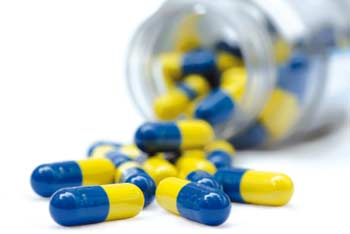Antibiotics For The Treatment Of Anthrax

Anthrax is caused primarily by the bacterium B anthracis
It is rare in the United States and in many parts of Europe, West Africa and Asia, and is more common in livestock in East and South Asia, North and Central Africa, and South and Central Europe.
If you have a sick animal that is sick or dying, it is important to take steps to prevent the spread of the disease, which could affect another animal or person with a weak or unhealthy immune system, or those in contact with animals. which have already been infected. Some steps that can help prevent anthrax include:
- Make sure your children have received all the necessary anthrax vaccinations. This may be done by your local veterinarian, health care provider at work, or the National Health and Medical Research Council (NHMRC). Most vaccines can be bought without a prescription, but you will need a prescription from a licensed veterinarian to get vaccines for your pet. Be sure to get all the necessary vaccinations for animals under your supervision, including pregnant animals.
- Make sure you provide your animals with a safe and dry environment. Any unsanitary conditions such as wet litter boxes must be removed immediately.
- Food is an important factor for animals that have contracted this disease. Whenever possible, keep all food and water sources clean and disinfected, as contaminated supplies can carry bacteria that can infect humans and other animals. Your veterinarian may recommend a diet for your pet based on the type of anthrax they've contracted.
- Cleanse your animal's environment daily. It is also important to wash your hands after handling animals, especially if the animals appear to be unusually sick. This is due to the fact that bacterial spores can travel through the air and get on the skin of the animal, and can also come into contact with contaminated bedding, toys and clothing.
- Be careful when caring for a recovered animal, as bacteria can remain in the animal's skin for a long time after the infection has cleared. Wash your hands with soap and water as soon as possible. and remove any hair that has been shaved in the wound as it still carries bacteria.
- If possible quarantine the infected animal in isolation to prevent the spread of the disease to other animals or people. It may also be helpful to isolate animals that have not been in contact with an animal that has been diagnosed with the disease. This will help reduce the risk of spreading bacteria to other animals or people. If the infected animal has other animals, they should also be quarantined.
- Use a quarantine pen to isolate infected animals. If the infection spreads to another animal or person, there is a risk of the bacteria spreading to more animals and people.
- Keep all animals isolated in their own area until treatment ends. If the treatment is successful, these animals will be released back to their home territory. However, if the infection spreads to another animal, you can release the sick animal into its normal environment.
- Do not allow animals to breed if they have been treated for at least seven days. This will prevent the spread of bacteria to other animals and people.
- Reduce the animal's diet. – Use antibiotics and make sure they are not given anything that contains a vaccine or antibiotic, such as cough syrup, unless it is due to a serious infection or other cause.
